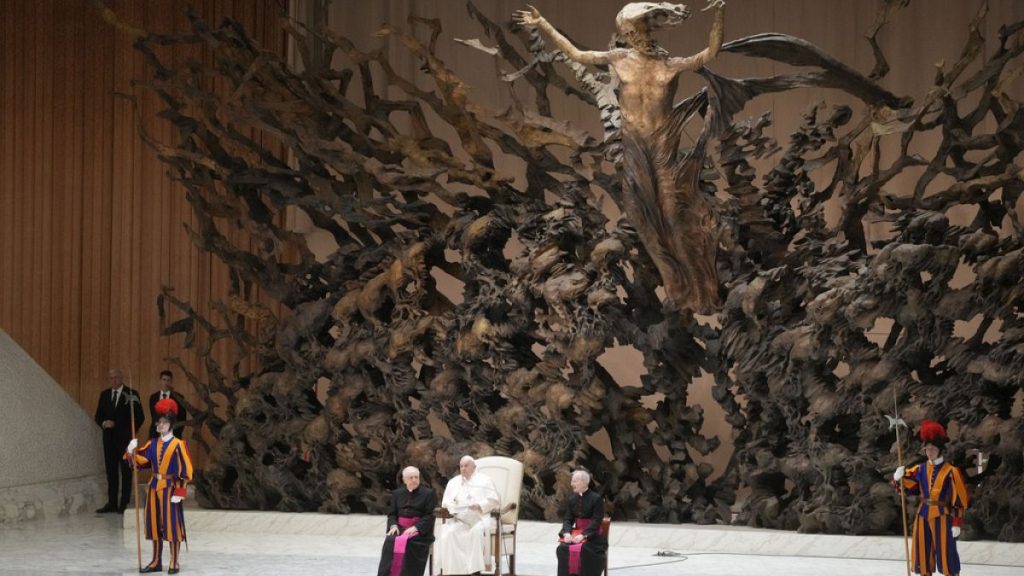Pope Francis’s address to the Jubilee of the World of Communications in Rome served as a clarion call for responsible media consumption and ethical journalism in the digital age. His words resonated with the approximately 9,000 journalists and writers from 138 countries gathered both physically and virtually, addressing the multifaceted challenges and opportunities presented by contemporary media landscapes. The Pope’s central message stressed the importance of hope and truth in storytelling, particularly in a world grappling with conflict, division, and the pervasive spread of misinformation. He cautioned against the mindless consumption of social media content, labeling excessive scrolling as “brain rot,” a stark warning against the potential for digital platforms to erode critical thinking and meaningful engagement with the world.
The Pope’s critique of social media consumption underscored a growing concern about the impact of constant connectivity on individuals and society. The deluge of information, much of it unverified or deliberately misleading, poses a significant threat to informed decision-making and constructive dialogue. The Pope’s metaphor of “brain rot” vividly captures the potential for excessive engagement with superficial online content to dull intellectual curiosity, diminish critical thinking skills, and foster a passive acceptance of information without proper scrutiny. This warning serves as a timely reminder of the importance of mindful media consumption and the need to cultivate discerning habits in navigating the digital landscape.
Beyond addressing the pitfalls of social media, Pope Francis also emphasized the crucial role of journalists as truth-tellers and beacons of hope. He urged those in the media profession to embrace courageous storytelling that not only exposes injustice and wrongdoing but also nurtures life and inspires positive change. This call to action highlighted the transformative power of narrative, particularly in times of crisis and division. By focusing on stories that illuminate resilience, compassion, and the potential for human connection, journalists can contribute to building a more just and harmonious world. The Pope’s words served as a poignant reminder of the ethical responsibility that comes with the power to shape public perception and influence societal discourse.
The Jubilee provided a platform for prominent voices to share their perspectives on the challenges and opportunities facing journalism today. Nobel Peace Prize laureate Maria Ressa, a Filipino-American journalist, offered a powerful testament to the importance of press freedom in upholding democratic values. Drawing on her personal experiences of persecution, Ressa underscored the vital role of journalists in holding power to account and ensuring transparency in governance. Her presence at the event served as a stark reminder of the risks faced by journalists worldwide who dare to speak truth to power and expose corruption. Ressa’s story exemplified the courage and resilience required to defend the principles of a free press in an increasingly hostile environment.
Irish author Colum McCann also contributed to the dialogue, emphasizing the unique power of storytelling to bridge divides and foster empathy. McCann’s insights highlighted the potential for literature and journalism to transcend cultural boundaries and connect individuals through shared human experiences. His words resonated with the Pope’s call for hope-telling, underscoring the transformative potential of narratives that illuminate the common threads of humanity and promote understanding across differences. The presence of both Ressa and McCann at the Jubilee underscored the interconnectedness of journalism, literature, and the broader cultural landscape in shaping public discourse and promoting positive social change.
The backdrop of the Jubilee was marked by a sobering reality – the increasing dangers faced by journalists in conflict zones. Pope Francis acknowledged the sacrifices made by media professionals, highlighting the tragic loss of over 120 journalists in 2024 while covering conflicts, with the majority killed by the Israeli military in Gaza. This stark reminder of the risks inherent in reporting from the front lines underscored the urgent need to protect journalists and ensure their safety in fulfilling their vital role as chroniclers of truth. The Pope’s acknowledgment of these losses served as a powerful call for greater international efforts to safeguard the lives and freedoms of journalists worldwide. The statistics presented by the Committee to Protect Journalists (CPJ), detailing the targeted killings of journalists in Gaza, further emphasized the gravity of the situation and the need for accountability in holding perpetrators of violence against journalists to justice. The Pope’s concluding message, urging communicators to build bridges in a divided world, resonated with a renewed sense of urgency and purpose in the face of these challenges.














